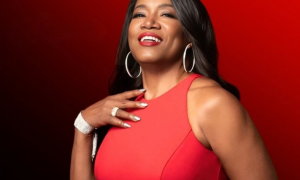By Brian Popowitz of Black Box.
Remember when you were in elementary school and you would go around in a circle and state what you wanted to do when you grew up? Some would say “fireman.” Others would say “teacher” or “lawyer.” When it came to me, my answer was Lyor Cohen.
I knew that I wanted to work in the music business from as early as I can remember. Whether it was Clive Davis, Tommy Mattola, or Lyor, I knew that I wanted to do what they did. And I had to figure out how to get there.
In high school I started a DJ company. In college I designed my own academic major called Music Industry & Society. I networked. I interned. I was even an independent contractor with Geffen/UMG during undergrad, doing early street team work and what was then, New Media.
Long story short, I have spent my entire professional life working for a record label. Throughout the process, the dream has been refined and the industry has changed. But the passion has always been there. And that brings you up to this very minute. In September I left Warner Bros. Records to start a new opportunity with Livia Tortella (former WBR president) at a music company called Black Box. I sure hope you hear about Black Box a lot over the next year, but that isn’t what this article is about. It’s about the very general professional lessons that I’ve learned while working for record labels my entire professional career. The list is short but important.
1. The industry rewards relationships and experience over education.
I got my first opportunities in the music business because I knew someone who knew someone. I deferred spending a semester abroad or even going to grad/law school because the experience or accolades held little weight in my music business professional development. Would it surprise you that I’ve never really had a proper resume because I’ve never really needed it? All of these examples are realities of the business. Leverage is found in who you know and what you’ve done. If you aren’t building relationships or experience in this business, you’re not moving forward. Recognizing what drives professional growth has informed major life decisions, such as where I live, how I spend my time, or how I went about my education. And this understanding has proven to be true at nearly every step on the way.
2. You don’t know how big to dream until you’ve worked for a major label.
It’s true. I chalk so much of my fundamental learning and growth to my experience working for indie labels. But one thing you rarely learn at an indie is how to dream big. Working at a major has given me this perspective. And I’m surprised to realize how valuable this understand has become and will continue to become on each new project I touch. When the expectation is stardom, when the budget has a lot of zeros, and when the resources are vast, we as a music industry can do some pretty amazing things.
3. Never get comfortable.
Those who are comfortable in high positions are holding the industry back. Those who are comfortable in lesser positions are holding themselves back. I have not accompanied a fraction of what I’d like to. But I’ll get there as long as I never get comfortable. Comfort is a state of ease. And as a business in distress, it is comfort that will prolong the status quo.
4. Never burn bridges.
I suppose this lesson is more universal then a music business lesson. But it’s important to underscore. The business is incestuous. And sure, there are egos and eccentric personalities and your patients will be tried. But as a golden rule, take the high road and don’t burn a bridge.
In an industry predicated off relationships and strategy, one must always remember that you’ll need a bridge to get to that next place.
5. Don’t waste time looking for a magic bullet.
The music industry is smitten with the idea of virality, exponential growth, and instant gratification. And when an idea doesn’t work, more ideas are often sought after. But ideas are actually just a byproduct of a strategy. If you can be a strategist and not just an idea man, you can do anything in this business.
When you accept this rule, you can be pragmatic, strategic, and progressive. Without a magic bullet we will have to imply real artist development strategy. We will have to really understand who our fans are. And we will have to think long term.
And this is good for all.
Remember when you were in elementary school and you would go around in a circle and state what you wanted to do when you grew up? Some would say “fireman.” Others would say “teacher” or “lawyer.” When it came to me, my answer was Lyor Cohen.
I knew that I wanted to work in the music business from as early as I can remember. Whether it was Clive Davis, Tommy Mattola, or Lyor, I knew that I wanted to do what they did. And I had to figure out how to get there.
In high school I started a DJ company. In college I designed my own academic major called Music Industry & Society. I networked. I interned. I was even an independent contractor with Geffen/UMG during undergrad, doing early street team work and what was then, New Media.
Long story short, I have spent my entire professional life working for a record label. Throughout the process, the dream has been refined and the industry has changed. But the passion has always been there. And that brings you up to this very minute. In September I left Warner Bros. Records to start a new opportunity with Livia Tortella (former WBR president) at a music company called Black Box. I sure hope you hear about Black Box a lot over the next year, but that isn’t what this article is about. It’s about the very general professional lessons that I’ve learned while working for record labels my entire professional career. The list is short but important.
1. The industry rewards relationships and experience over education.
I got my first opportunities in the music business because I knew someone who knew someone. I deferred spending a semester abroad or even going to grad/law school because the experience or accolades held little weight in my music business professional development. Would it surprise you that I’ve never really had a proper resume because I’ve never really needed it? All of these examples are realities of the business. Leverage is found in who you know and what you’ve done. If you aren’t building relationships or experience in this business, you’re not moving forward. Recognizing what drives professional growth has informed major life decisions, such as where I live, how I spend my time, or how I went about my education. And this understanding has proven to be true at nearly every step on the way.
2. You don’t know how big to dream until you’ve worked for a major label.
It’s true. I chalk so much of my fundamental learning and growth to my experience working for indie labels. But one thing you rarely learn at an indie is how to dream big. Working at a major has given me this perspective. And I’m surprised to realize how valuable this understand has become and will continue to become on each new project I touch. When the expectation is stardom, when the budget has a lot of zeros, and when the resources are vast, we as a music industry can do some pretty amazing things.
3. Never get comfortable.
Those who are comfortable in high positions are holding the industry back. Those who are comfortable in lesser positions are holding themselves back. I have not accompanied a fraction of what I’d like to. But I’ll get there as long as I never get comfortable. Comfort is a state of ease. And as a business in distress, it is comfort that will prolong the status quo.
4. Never burn bridges.
I suppose this lesson is more universal then a music business lesson. But it’s important to underscore. The business is incestuous. And sure, there are egos and eccentric personalities and your patients will be tried. But as a golden rule, take the high road and don’t burn a bridge.
In an industry predicated off relationships and strategy, one must always remember that you’ll need a bridge to get to that next place.
5. Don’t waste time looking for a magic bullet.
The music industry is smitten with the idea of virality, exponential growth, and instant gratification. And when an idea doesn’t work, more ideas are often sought after. But ideas are actually just a byproduct of a strategy. If you can be a strategist and not just an idea man, you can do anything in this business.
When you accept this rule, you can be pragmatic, strategic, and progressive. Without a magic bullet we will have to imply real artist development strategy. We will have to really understand who our fans are. And we will have to think long term.
And this is good for all.


























